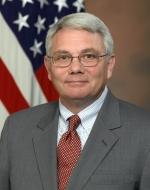Succesive Encounters with the Requisite Organization Theory
Speaker A I'm Mike Kirby, and I'm the I'm currently the deputy undersecretary of the United States Army for Business transformation engineering. Background MBA time as a serving officer in the US. Arm...
Transcript of the presentation video
NOTE: This transcript of the video was created by AI to enable Google's crawlers to search the video content. It may be expected to be only 96% accurate.
Speaker A I'm Mike Kirby, and I'm the I'm currently the deputy undersecretary of the United States Army for Business transformation engineering. Background MBA time as a serving officer in the US. Army and then in the business world and now recalled to civilian service for a three year term of office in the Army Secretariat. I was in the chief of staff of the Army's office about 20 years ago, working for the senior uniformed officer in the army. And a fellow named Elliot Jacks came in, brought in by Dr. Steve Clement, a friend of mine at the time. And still and Elliot was doing some work for the army and was explaining this to the chief of staff. And he gave him a book, requisite organization, signed it to him. And as he was leaving, the chief of staff turned to me and said, here, you better read this book. I don't know if I'm going to have time to do it. So I plowed through Ro and that was my real first exposure to the theory and the practice and again from MBA days, which wasn't too far in front of that. It was compelling, I think, in terms of a body of knowledge. I continued to serve in the army, went into the business world, was in the aerospace business, participated in a lot of different mergers and acquisitions, reorganizations. And I think I saw the lack of principled approach to business organization. Got asked to join the Army Science Board, which is a pro bono organization or a pro bono body of essentially business people and academics that look at the army from a different perspective. Was actually brought in to do that about four years ago. And who should I see there as well but Dr. Clement? And he sort of reacquainted me with the theory. And in fact, our first task was to help the then Secretary of the Army, Tom White, do some realignment of the headquarters. So I guess I sort of got reintroduced to the theory, but more important, I got reintroduced to the importance of basing organizational decision structure and really your whole business plan on a set of principles, proven principles. And now as the Deputy Undersecretary of the army for Business transformation really charged by the Secretary and the Chief of Staff to lead a change process in terms of the way the army does business, I'm firmly grounded in the principles and have a chance now at the executive level to actually lead them through the application in an organization. So that's sort of where I start to finish. Came to address you today, Sam.
Major organizations and consulting firms that provide Requisite Organization-based services





